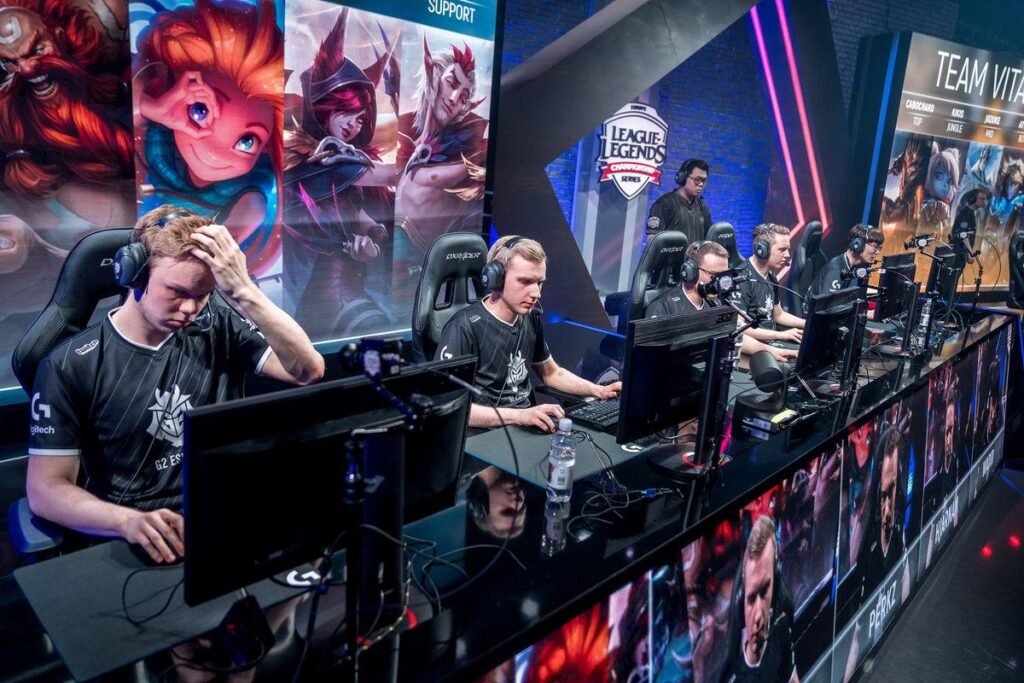Esports, or electronic sports, is a growing field where players compete in video games professionally, either solo or as part of a team. These tournaments and competitions bring together fans and players worldwide, with top players earning fame, sponsorships, and large cash prizes.
When it comes to esports, the path to becoming a great player can be both exhilarating and overwhelming for those who are just starting out. You will be guided through the fundamentals of beginning an esports career, beginning with selecting the appropriate game and ending with an awareness of the training that is required to improve.
1. Choosing Your Game
You should begin your adventure into esports by choosing a game that you are interested in playing and that you want to become excellent in. It is important to choose a game that corresponds with your interests because different games require varying amounts of ability. There are many popular types of esports, including:
Battle Royale Games (e.g., BGMI, Fortnite): These games focus on survival, where the last person or team standing wins. For example, in BGMI, players often join BGMI scrims, and practice matches designed to simulate competitive gameplay. Scrims can help you gain confidence, build skills, and get comfortable with high-pressure environments.
Multiplayer Online Battle Arenas (e.g., League of Legends, Dota 2): MOBAs emphasize strategy and teamwork, with teams fighting to control areas on a virtual battlefield.
2. Setting Up Your Gear
It is imperative that you make the necessary financial investment in gaming equipment once you have decided on a game. The term “good gear” does not necessarily refer to the most expensive equipment; rather, it refers to the quest for gaming gear that is both comfortable and satisfies your requirements. Key considerations include the following:
- Computer or Console: Make sure your PC or console can run the game smoothly. Lag or slow gameplay can affect your performance.
- Controller or Keyboard and Mouse: Choose peripherals that suit your gaming style. For example, some players prefer controllers for specific games, while others feel more comfortable with a keyboard and mouse.
- Headset: Communication is vital in team-based games, so a quality headset can make a big difference.
- Monitor: A monitor with a high refresh rate will help you see fast-paced action more clearly, giving you an advantage.
With the right setup, you’ll be able to play without interruptions and perform at your best.
3. Understanding Game Mechanics and Strategies
Every game has unique mechanics and strategies, and becoming familiar with these is essential. Spend time learning the game’s controls, features, and the rules of competitive play. For example, if you’re interested in BGMI, understanding its maps, weapons, and movement mechanics is crucial for good gameplay.
Once you’ve mastered the basics, start studying more advanced strategies. Watch professional players to see how they play and analyze their tactics.
4. Joining an Esports Team or Community
Esports is a team-focused field, and being part of a community or team can help you learn faster and stay motivated. Look for online communities on platforms like Discord or Reddit, where players discuss strategies, organize scrims and share tips. Joining a team can also improve your communication skills, as teamwork is crucial in many esports games.
5. Learning from Mistakes and Improving
Esports, like any competitive activity, involves a learning curve. You’ll face losses and setbacks, but these experiences can be valuable learning tools. After each game, review your performance and note where you can improve. Watching replays of your games or seeking feedback from more experienced players can provide insights into areas you might not have noticed.
Keeping a positive mindset and focusing on growth will make your esports journey more enjoyable and productive.
6. Attending Tournaments and Competing in Events
Think about competing in greater events as you advance in your career. Participating in actual competitions allows you to feel the excitement of esports while also putting your talents to the test against those of other players. Different degrees of competition are available for a variety of games, ranging from regional tournaments to international championships.
For BGMI players, tournaments may also include opportunities to play in BGMI custom rooms where settings can be customized for specific gameplay formats. These custom rooms allow players to practice under conditions that resemble actual competitions, giving you a head start in developing strategies and building confidence.
Conclusion
By practicing you will gain confidence, refine your skills, and connect with others who share your passion for gaming. With hard work, dedication, and a willingness to learn, you can make your mark in the exciting and rapidly growing world of esports.



